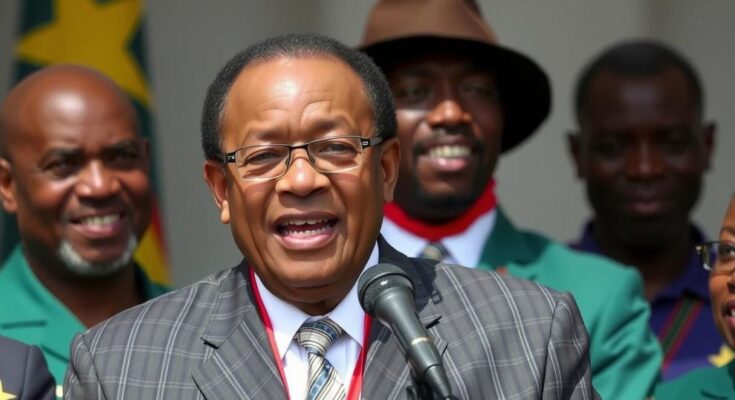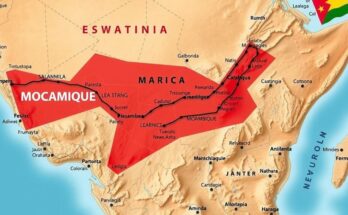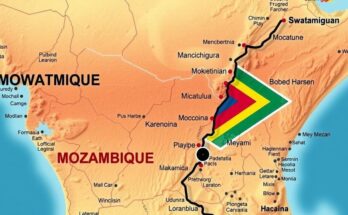Mozambique’s Constitutional Court confirmed the ruling Frelimo party’s victory in the disputed October elections, which has intensified fears of violence. Daniel Chapo received 65% of the vote, while opposition leader Venancio Mondlane claimed that the elections were rigged. Protests and unrest have followed the elections, raising concerns over stability in Mozambique as the opposition plans to contest the results.
Mozambique’s Constitutional Court upheld the ruling Frelimo party’s victory in the contentious October elections on Monday, despite allegations of electoral manipulation. The court reported that Frelimo’s candidate, Daniel Chapo, received 65 percent of the votes, revising earlier figures that suggested he had nearly 71 percent. Chapo’s main rival, the exiled opposition leader Venancio Mondlane, was credited with 24.2 percent, a figure increased from prior reports. The decision has exacerbated tensions in the country, prompting fears of renewed violence as opposition factions vow to contest the legitimacy of the results, which have resulted in substantial street unrest and fatalities over recent weeks.
Chapo, a former provincial governor without national government experience, expressed a commitment to dialogue with Mondlane, who has been living in exile since the assassination of his legal counsel. In a social media address following the court’s ruling, Mondlane emphasized the importance of continuing to pursue what he termed “electoral truth,” and indicated plans to intensify protests should the results be validated. The United States government has also urged restraint and called for peaceful cooperation amongst political factions amidst concerns over the political dynamics that have unfolded since the election.
Mozambique has experienced significant unrest since the elections. Local NGOs have reported over 130 fatalities, mainly among opposition demonstrators, further complicating the country’s socio-political landscape, which is marked by widespread poverty despite abundant resources. The U.S. has increased travel warnings to Mozambique as tensions rise, and calls for international dialogue and goodwill from global leaders, including Pope Francis, underscore the urgency of addressing the escalating conflict. Political analysts warn that the potential for bloodshed could intensify if the court’s ruling is perceived as legitimizing a rigged electoral process, leading to widespread discontent reminiscent of historical uprisings in the region.
The political situation in Mozambique has been precarious, particularly following the October elections, which have drawn accusations of electoral fraud leading to violent protests. The Frelimo party, which has held power for over fifty years, faced significant opposition from Mondlane, who contends that the election was rigged. Allegations of violence and heavy-handed tactics by security forces against demonstrators have drawn sharp international criticism, resulting in increased caution from other nations and calls for dialogue. The gravity of this situation points to a potential turning point in the country’s governance and civil order, underscoring a deep-rooted dissatisfaction among segments of the populace particularly among the youth.
In summary, the confirmation of Frelimo’s election victory by Mozambique’s highest court has heightened tensions within an already volatile political climate, with opposition factions vowing to contest the legitimacy of the results. The volatile backdrop of recent violence, including loss of life among demonstrators, paints a grim picture for Mozambique. As both domestic and international observers call for restraint, the nation stands at a crossroads, facing the possibility of further unrest in response to a perceived dismissal of the electoral process.
Original Source: www.wfxg.com




